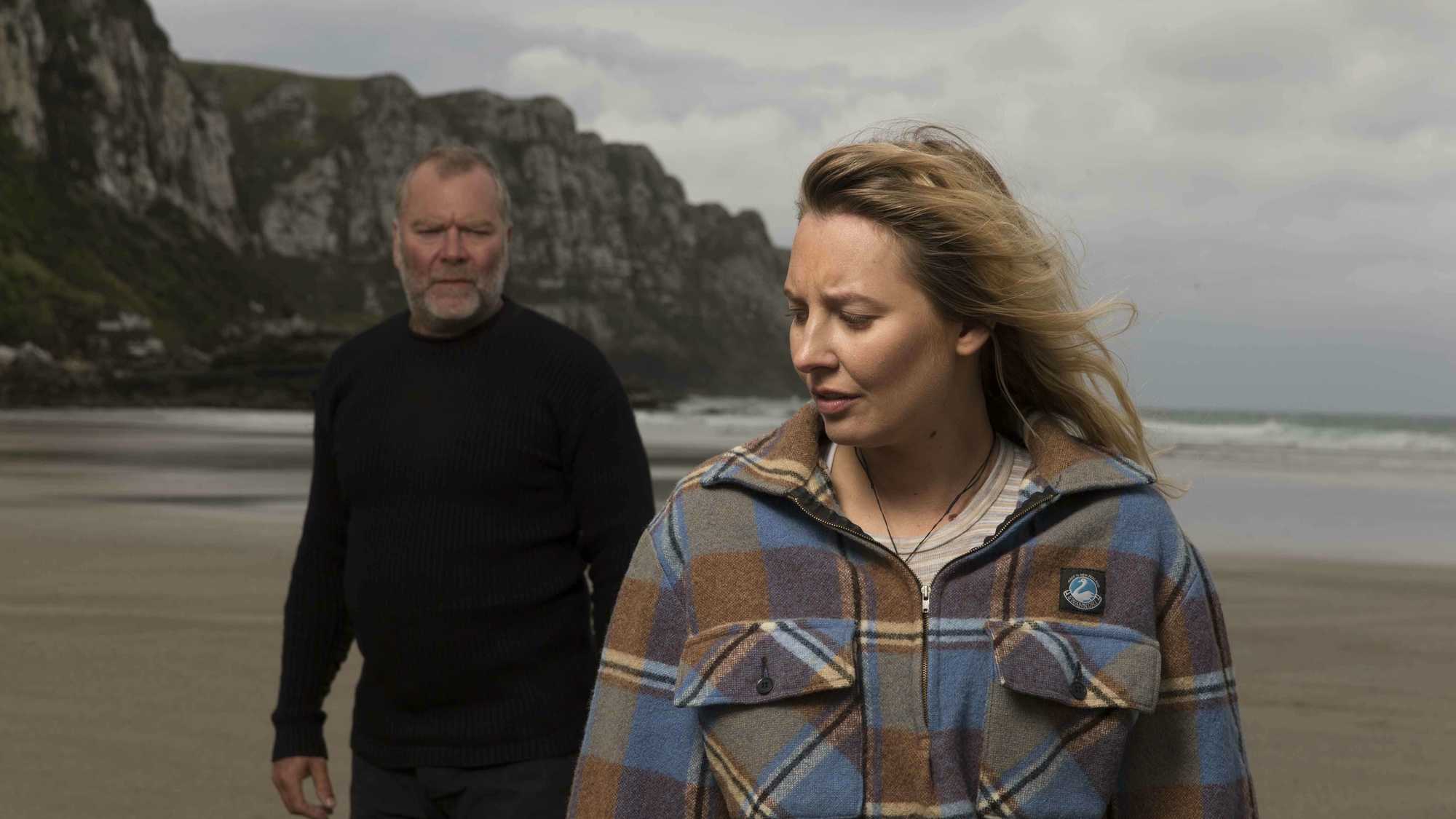Though its characters lack motivation, Nic Gorman’s Human Traces is a finely executed and taught thriller.
Nic Gorman’s first full length feature, Human Traces, slots nicely into the tradition of taking a small group of characters, putting them in a claustrophobic space and introducing an outsider who disturbs the peace. Though the film takes place on an island and the characters spend most of their time outside in the freezing winds, Gorman directs using intimate close-ups, a fractured timeline and places heavy importance on the actors’ interactions. The result is a tightly controlled and effective outdoor chamber piece unfortunately weighed down by weak character motivations.
Sarah (Sophie Henderson) and Glenn (Mark Mitchinson) are environmental scientists working out on a remote island in the Antarctic Ocean. Another scientist, Tanya (Sara Wiseman), is ecstatic to be leaving and returning to civilisation, whereas Glenn is content to stay. Taking Tanya’s place as a temp is Pete (Milo Cawthorne), about whom not much is known.
Title cards split up the film, with sections on ‘Sarah’, ‘Glenn’ and ‘Pete’. This is one of the most interesting things about the film, and shows Gorman’s knack for playing with cinematic narratives as each chapter takes the perspective of its character. During ‘Sarah’, when Glenn and Pete get into a scuffle outside the cabin, we stay with her inside. During Sarah and Pete’s solo expedition, we see them kiss, but we have to wait for Glenn’s chapter to see why he really sent them out there alone.
The technique shows what a compelling narrative device perspective is in cinema, especially when scenes we’ve already seen are played again, with the camera following somebody else the second time around. When Glenn and Pete first meet, we see how quickly Glenn jumps out of his seat to interrupt him and Sarah. It’s a shame, then, that the technique’s effect is somewhat dampened by the characters’ lack of clear motivations.
While Glenn aggressively states that he wants never to return to civilisation, we don’t get a good sense of Sarah’s response to her husband’s behaviour. Each of the actors portray a sense of comfortability and intimacy with one another, which is essential for a film like this, and though Henderson is a joy to watch on screen, I wanted to know more about what drove her, how her desires conflicted with her husband’s. As Pete, Cawthorne is suitably enigmatic, but he skirts the edges of a human being, never quite developing beyond the role of the antagonist. Mitchinson gets the most to grab onto with his character. His increasingly outlandish behaviour holds the piece together.
With its fast-moving plot and little time for character development, Human Traces is likely to leave some viewers underwhelmed. That said, it’s a fine example of how a narrative is shaped by those who experience it, demonstrating in Gorman a fine director worth watching.


